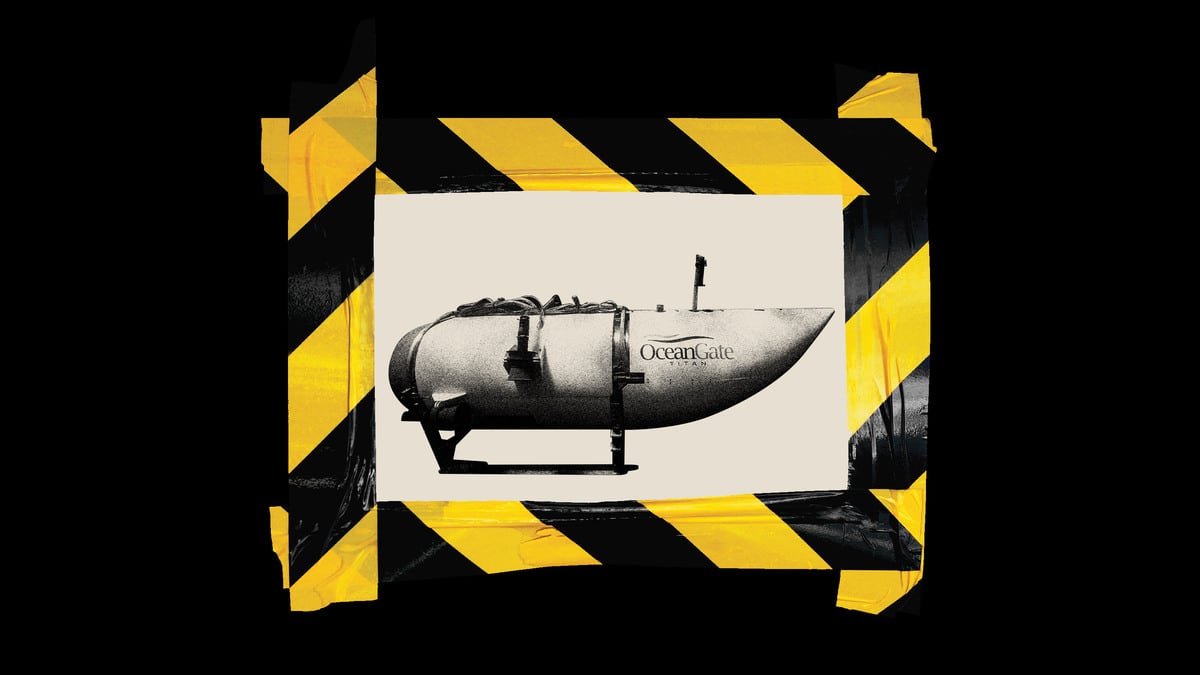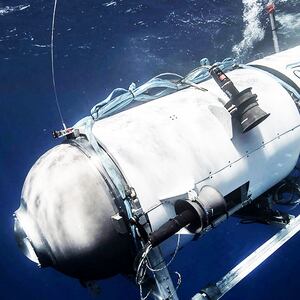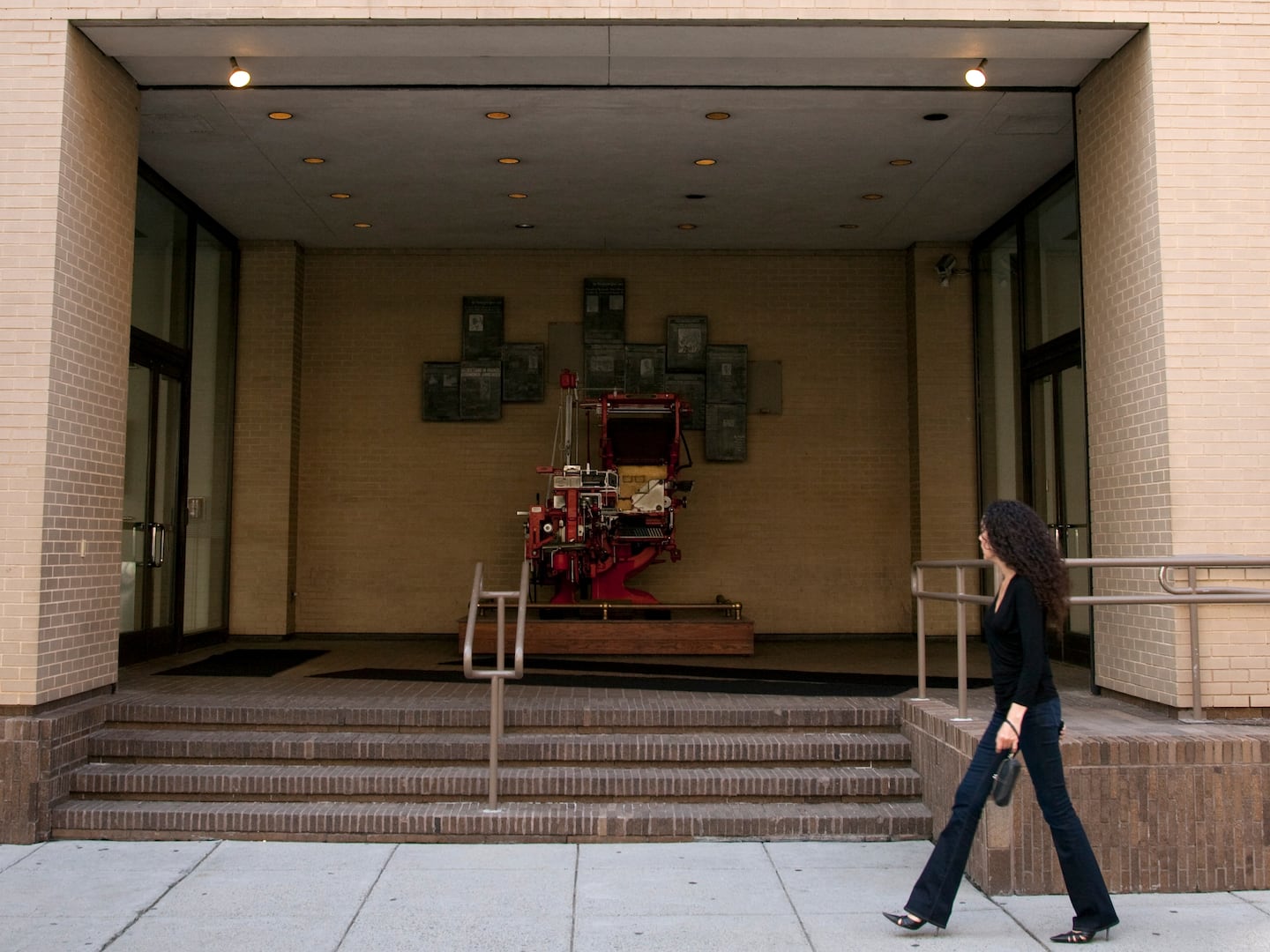The company in charge of the submersible mission to the Titanic that disappeared this weekend received several prior warnings that its approach may be too risky, including lawsuits from former employees and warning letters from fellow industry professionals.
OceanGate Expeditions, a submersibles touring company founded in 2009 by pilot and aerospace engineer Stockton Rush, set off on its mission to the 12,500-feet-below-sea-level wreckage on Sunday morning with five passengers aboard. The vessel lost contact with the surface ship supporting it that evening and has not been heard from since. The Coast Guard and Canadian authorities have launched a rescue mission to save the passengers, whose 96 hours of additional oxygen are quickly running out.
“We are exploring and mobilizing all options to bring the crew back safely,” OceanGate said in a statement Monday. “Our entire focus is on the crew members in the submersible and their families.”
But the company had previously been cautioned about the safety of its vessels by an ex-employee. In response to a lawsuit accusing him of breach of contract, British submersible pilot and diver David Lochridge alleged he was fired by OceanGate in 2018 for raising “critical safety concerns regarding OceanGate’s experimental and untested design of the Titan”—the same submersible currently lost at sea.
Lochridge alleges he raised concerns in a January 2018 report and in a subsequent meeting about OceanGate’s refusal to conduct “critical, non-destructive testing of the experimental design of the hull.” He added that he disagreed with the company’s desire to “dive the submersible without any non-destructive testing to prove its integrity, and to subject passengers to potential extreme danger in an experimental submersible.” He claims he was fired shortly thereafter.
OceanGate claims Lochridge was fired because he refused to accept their engineer’s assurances of the safety of the vessel and said he could not accept the company’s research and development plans moving forward. The lawsuit and Lochridge’s counterclaim were first reported by The Daily Mail.
Lochridge’s report was not the last warning OceanGate would receive. Later that year, more than three dozen industry leaders sent a letter to Stockton expressing their “unanimous concern” about the Titan and urging him to test the vessel with an accredited outside group. The letter, organized by the Manned Underwater Vehicles committee of the Marine Technology Society, warned of negative outcomes ranging “from minor to catastrophic” that could occur if the company continued with its “experimental” approach. The signatories included oceanographers, submersible company executives, and deep-sea explorers, according to The New York Times, which first reported the letter.
“The submersible industry had significant concerns over the strategy of building a deep sea expedition submersible without following existing classification safety guidelines,” Will Kohnen, the chairman of the committee, told the Times.
Kohnen said Rush responded by calling him and complaining that industry regulations were stifling innovation.

Stockton Rush, CEO of OceanGate exhibitions.
Shannon Stapleton/ReutersRush was quoted in a 2019 Smithsonian magazine piece expressing similar sentiments, bemoaning the fact that the submersibles industry “hasn’t innovated or grown—because they have all these regulations.” He specifically criticized the Passenger Vessel Safety Act of 1993, which imposed new standards on passenger vehicles for hire, for prioritizing passenger safety over commercial innovation, according to the profile.
The company posted an article on its website that same year about why its vessels are not “classed,” or assessed by outside inspectors like those the letter-writers recommended. In the post, first unearthed by Vice, the company claimed that “bringing an outside entity up to speed on every innovation before it is put into real-world testing is anathema to rapid innovation.”
“This does not mean that OceanGate does meet standards where they apply,” it added, “but it does mean that innovation often falls outside of the existing industry paradigm.”
Alex Adams, a former OceanGate employee who worked in business development from 2010 to 2011, told The Daily Beast that he joined when the company was still figuring out what to do with its submersible vessels. “This was his passion project and he was funding the whole thing and trying to figure out how he could make something out of ocean exploration,” Adams said. “They were prospecting for the best and most viable, sticky use for that sub.”
The company tossed around a few ideas, including using it for scientific explorations or sightseeing, before landing on shipwreck tours. Adams said he was not surprised the company decided to go for the Titanic, which he called the “holy grail of shipwrecks.”
“Stockton is an ambitious guy,” he said. “Something like that is within the scope of the target he would set.”
“It seemed like this consumed him,” he added of Stockton and his company. “This is where he was spending his time and his money—on this project.”
Additional reporting by Kate Briquelet and William Bredderman








